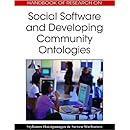
Book: Mass collaboration in education is soon out
July 7, 2015Mass Collaboration and Education
Cress, Ulrike; Moskaliuk, Johannes; and Jeong, Heisawn (Eds.)
Table of Contents
Introduction
Chapter 1: Ulrike Cress; Heisawn Jeong; and Johannes Moskaliuk. Mass Collaboration as an Emerging Paradigm for Education? Theories, Cases, and Research Methods
Part I: Theoretical Approaches to Mass collaboration
Chapter 2: Allan Collins. A Brief History of Mass Collaboration: How Innovations over Time have Enabled People to Work Together More Effectively
Chapter 3: Gerhard Fischer. Exploring, Understanding, and Designing Innovative Socio-Technical Environments for Fostering and Supporting Mass Collaboration
Chapter 4: Mark Elliott. Stigmergic Collaboration: A framework for understanding and designing mass collaboration
Chapter 5: Ulrike Cress; Insa Feinkohl; Jens Jirschitzka; and Joachim Kimmerle. Mass Collaboration as Co-Evolution of Cognitive and Social Systems
Chapter 6: Aileen Oeberst; Joachim Kimmerle; and Ulrike Cress. What is Knowledge? Who Creates it? Who Possesses it? The Need for Novel Answers to Old Questions
Chapter 7: Wai-Tat Fu. From Distributed Cognition to Collective Intelligence: Supporting Cognitive Search to Facilitate Online Massive Collaboration
Part II: Cases of Mass Collaboration
Chapter 8: Tobias Ley; Paul Seitlinger; and Kai Pata. Patterns of Meaning in a Cognitive Ecosystem: Modeling Stabilization and Enculturation in Social Tagging Systems
Chapter 9: Aileen Oeberst; Ulrike Cress; Mitja Back; and Stefen Nestler. Individual versus Collaborative Information Processing: The Case of Biases in Wikipedia
Chapter 10: R. Benjamin Shapiro. Toward Participatory Discovery Networks: A Critique of Current Mass Collaboration Environments and A Possible Learning-Rich Future
Chapter 11: Deborah A. Fields; Yasmin B. Kafai; and Michael T. Giang. Coding by Choice: A Transitional Analysis of Social Participation Patterns and Programming Contributions in the Online Scratch Community
Chapter 12: Ricarose Roque; Natalie Rusk; and Mitchel Resnick. Supporting Diverse and Creative Collaboration in the Scratch Online Community
Chapter 13: Brigid Barron; Caitlin K. Martin; Véronique Mertl; and Mohamed Yassine. Citizen Science: Connecting to Nature through Networks
Chapter 14: Sabrina C. Eimler; German Neubaum; Marc Mannsfeld; and Nicole C. Krämer. Altogether now! Mass and Small Group Collaboration in (Open) Online Courses – A Case Study
Chapter 15: Thomas Herrmann. Socio-Technical Procedures of Facilitated Mass Collaboration for Creative E-Participation
Part III: Methods to Empirically Analyze Processes of Mass Collaboration
Chapter 16: Iassen Halatchliyski. Theoretical and Empirical Analysis of Networked Knowledge
Chapter 17: H. Ulrich Hoppe; Andreas Harrer; Tilman Göhnert; and Tobias Hecking. Applying Network Models and Network Analysis Techniques to the Study of Online Communities
Chapter 18: Ivan Habernal; Johannes Daxenberger; and Iryna Gurevych. Mass Collaboration on the Web: Textual Content Analysis by Means of Natural Language Processing
Chapter 19: Olga Slivko; Michael Kummer; and Marianne Saam. Identification of Causal Effects in the Context of Mass Collaboration









Congratulations for the chapter 8 Tobias Ley; Paul Seitlinger; and Kai Pata. Patterns of Meaning in a Cognitive Ecosystem: Modeling Stabilization and Enculturation in Social Tagging Systems